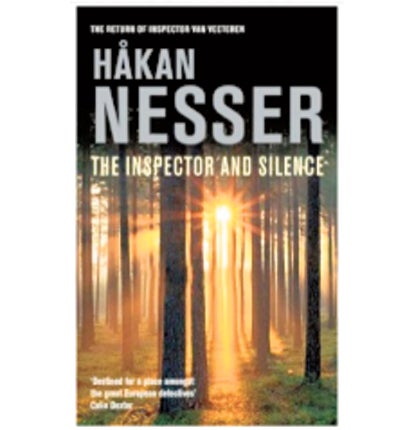The Inspector and Silence, By Håkan Nesser
Tempted by trouble in paradise

An idyllic spot near the clear waters of a lake among wooded hills, the long daylight of a Scandinavian summer, birch trees, dewy grass – what could be more tranquil?
But, of course, there is a serpent in this Swedish Eden, lurking around a summer camp known as the Pure Life. It is ruled by an unbalanced sadist known as the Good Shepherd, to whom parents have unwittingly entrusted their precious daughters. The ordinary life of roads and farms, known the Other World, lies beyond the camp's boundaries. The children are forbidden to enter it but one girl, braver than the rest, makes a courageous attempt to escape.
When she disappears, Håkan Nesser's Inspector Van Veeteren is called in. He discovers that the fanatical religious community at the camp has a nasty reputation locally, and that the leader has a dubious past. Rumours of sadistic treatment are circulating among the locals, and a hard-bitten local journalist is also suspicious after his researches into the sect.
But can all this add up to evidence of murder? Even after the girl's body is discovered, there is no proof, although the acolytes are severely questioned. Adult women at the Pure Life claim the camp has been attacked by the devil. Van Veeteren, convinced it is a very human devil, persists in his enquiries, dealing delicately with teenage girls and robustly with adults who may be responsible for their maltreatment. It's not long before his sidekick, Sergeant Kluuge, discovers another body in the forest, redoubling local fear and rage.
The atmosphere of the small town, the mysterious fringes of the forest full of aspens and blueberries, are evocatively drawn. So is that particular contribution of Sweden to crime fiction: the contrast between the purity of the surroundings and the essential wickedness lurking there, between the light summer nights and metaphorical darkness.
One redeeming feature of the backwoods town is its cinema. The clarity of Nesser's vision, the inner problems of good and evil with which Van Veeteren struggles, recall the films of Bergman. Also reminiscent of Bergman is the question of the value of religious belief, here articulated in a work of great moral complexity by the reporter, himself Jewish, who escaped Auschwitz because he was hidden by a Catholic family.
Join our commenting forum
Join thought-provoking conversations, follow other Independent readers and see their replies
Comments